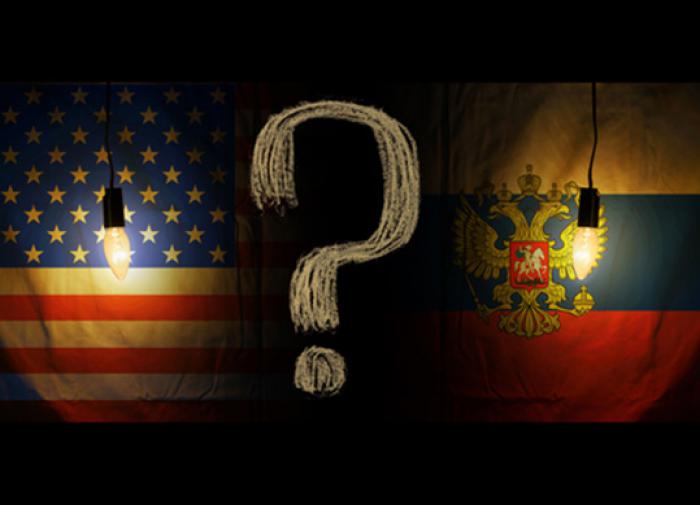Western analysts die of curiosity willing to find out whether Russians can topple Putin
Western analysts speculate why efforts to topple Vladimir Putin do not lead to any result. Why don't the Russians support Navalny?

Daragh McDowell, principal Russia analyst at risk analysis company Verisk Maplecroft, told CNBC that Navalny's verdict and his subsequent imprisonment will come as a powerful blow to the opposition that lost one of the most effective organizers and communicators.
"The key question is whether the current wave of protests unleashed by Navalny's arrest have reached a point where they are self-sustaining and will continue even as he and his team are removed from the field. Certainly, the decision to imprison him is likely to trigger at least a short-term uptick in street protests, accompanied by a corresponding increase in arrests and aggressive police brutality," McDowell noted.
In his opinion, the recent protests in Russia "largely" come as a result of Russia's long-term social and economic stagnation. It is not Navalny's political agenda that moves protesters, but the general feeling of being fed up with the status quo. The analyst hopes that the Russian population is rapidly approaching the limits of its tolerance.
Christopher Granville, the chief researcher for the EMEA (Europe, Middle East and Africa) at TS Lombard, shares a similar point of view. Granville believes that Vladimir Putin's long reign is entering its final phase, and the final will drag on alongside increased social tensions and polarization due to economic stagnation.
"Each side's support base in Russian society is too solid to permit quick or easy victories. Removing Navalny from the board, whether by assassination or, as now, incarceration, is no 'solution': far from being some personality cult, the movement he has galvanized marks a generational shift. The Putin base, still a plurality, is meanwhile cemented by rational fears of instability," he said.
Note that the expert logically doubts the version of the attempt on Navalny's life by Putin's order.
Leonid Bershidsky, a Russian expert at Bloomberg, believes that the saga may still take a turn. Putin will soon have to stand up against Yulia Navalny, who has seen a rise in her public profile since the poisoning attempt.
"Unlike Navalny, Yulia has no previous criminal convictions. She's eligible for political office. She's charismatic, determined and capable of winning Russian women's sympathy. Fighting her wouldn't be easy for Putin, who has long relied on a conservative female electorate. It's one thing to attack Navalny and his close allies as "foreign agents" and quite another to use the state's full power against a prisoner's faithful and eloquent wife," Bershidsky wrote.
Slate.com website in its article: "Why Putin is not in trouble - yet" cites Sam Greene, director of the Russia Institute at King's College London. This expert has come to conclusion that the Kremlin has given up on the persuasive strategy in relation to the opposition and swapped it for the coercive one.
In his opinion, it is such difficult times as today that help the Putin regime develop amazing resilience. "There's the ardent base the Russian leader cultivated by stoking a culture war pitting a solid nationalist-minded majority against an increasingly marginalized and insular liberal class," the author wrote.
"He (Putin) has built his power methodically," slate.com quoted Gregory Feifer, a veteran Russia watcher and former NPR correspondent in Moscow. "He's done it by trial and error," he added. The current period of time, Feifer believes, can be very indicative for "countless ordinary Russians who, despite their possible distaste for Putin's crude autocracy, have stayed politically uninvolved or otherwise silent over the years."
Apparently, Feifer and other experts whom we referred to above are not familiar with the opinion that many Russians share in relation to the Navalny saga. The problem is that Navalny's fight against corruption does not even screen off, but highlights the desire of the West to dismember Russia, ruin its sovereignty, plant its "liberal values" and appropriate its resources.
It is not ruled out that some time later, the West will look at Putin as a nice person, who wanted to live in harmony with everyone, but was not allowed to.
The Chicago Tribune editorial under the headline "The bromance is over. Biden must make 'Vlad the Poisoner' keenly aware of that" says that the right approach to Russia lies in mutually beneficial collaboration.
"That's the right approach. Collaborate on subjects of mutual interest. But if sanctions are called for, use them. If the freezing of assets abroad belonging to Kremlin cronies is warranted, freeze them. The bromance is over," the editorial reads.
THe people in the editorial board of The Chicago Tribune apparently do not understand that if they there had been something to freeze, they would have frozen it long ago.
Jake Rudnitsky at Bloomberg pointed out that Russia's relations with Washington reached a negative climax after the end of the Cold War, which means that Biden's influence in the international arena is limited.
Domestic policies and events in the former Soviet republics are likely to be more relevant, Rudnitsky believes. He draws a parallel with Belarus, where mass protests have shaken Alexander Lukashenko's 26 years in power.
The West will not resort to sectoral and financial sanctions, but will set Russia and the countries of the post-Soviet space on fire from the inside. However, it does not mean that Belarus will have its local 'Poroshenko' or 'Zelensky.'
Subscribe to Pravda.Ru Telegram channel, Facebook, RSS!


